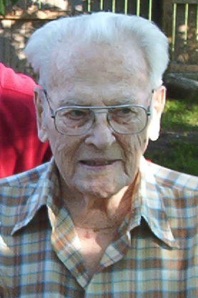There’s an interesting post on my friend Jim Stellar’s blog, the other lobe, by one of his students, Ashley Stempel. in engagement as an invaluable education tool: a lesson from social media, ashley talks about ownership and engagement as motivators in learning. while i disagree with ashley that they are one and the same, i do believe that both are very strong, if not essential, motivators to learning.
for ease of reading and comment, here’s my comment as i posted it to her post.
——
… I like your thoughts on social media providing people a way of getting their ideas out to the world. Although I’m not sure that I agree with your equating “ownership” and “engagement.” While I agree that both ownership and engagement are motivating factors which drive peoples’ use of social media tools, they are very different motivators.
Much is made today of the interaction and conversations that are driven by social media tools. The ability to engage with other like minded people regardless of time and geography is a very powerful motivator. You can put your ideas out there, get reaction to them and revise your ideas at a pace ever imagined 10-15 years ago. (Of course, the negative side is that you can get slammed faster than ever as well.) Humans are social beings by nature. We have always loved to learn in groups and with other like minded people. Honing our ideas in academies and forums, with groups of friends, and debating those who don’t agree with us. The new technologies make this easier to do.
You also talk about the engagement motivation in experiential education. This is particularly the case because of the involvement of mentors and experts. You can try things had have people you respect react and critique your ideas and efforts.
Ownership, in my mind, is very different than engagement. (Although, you can build ownership through engagement.) An Australian research in Adult Learning named Stephen Billett views adult learning as very much a process of “creating the story of our life.” In essence we create an narrative about ourselves which we then own. Billett sees this in apprenticeship learning situations (one form of experiential learning). We own our learning as we piece together who we are. In my view, building ownership is very much an inside job.
In the early days of blogging, most of those of us who were trying out this new online tool would post and post and post and never have a single comment from our readers. To the point that if it weren’t for services that reported how many people had viewed our blogs, we would have had no clue that anyone was actually reading them. But I can tell you, I felt a real ownership to my ideas – and resultingly ownership about myself as a blogger and a person – simply from the mere fact that I was recording my thoughts. Not surprisingly, in the early days, blogs were considered to be online diaries. Although, unlike my personal journals, I hoped someone would read them, the ownership came through my giving life to my thoughts.
I think it’s funny that Twittering and Facebooking are getting blasted for being self-aggrandizing. As if talking about ourselves, getting to know who we are, letting others know who we are and getting feedback from there are somehow bad things brought on by blogs and instant messaging. Building the story of who we are and sharing it with others is what being human is all about. It’s all about learning about ourselves, others, and the world we live in so that we can improve all three.


 which comes first? the chicken or the egg?
which comes first? the chicken or the egg? so i’ve done it. you can twitter me at dcleesfo. (for those who don’t know, that means my twitter homepage can be found at
so i’ve done it. you can twitter me at dcleesfo. (for those who don’t know, that means my twitter homepage can be found at 
 me keep the eelearning's name afloat through this transition.
me keep the eelearning's name afloat through this transition.







recent comments